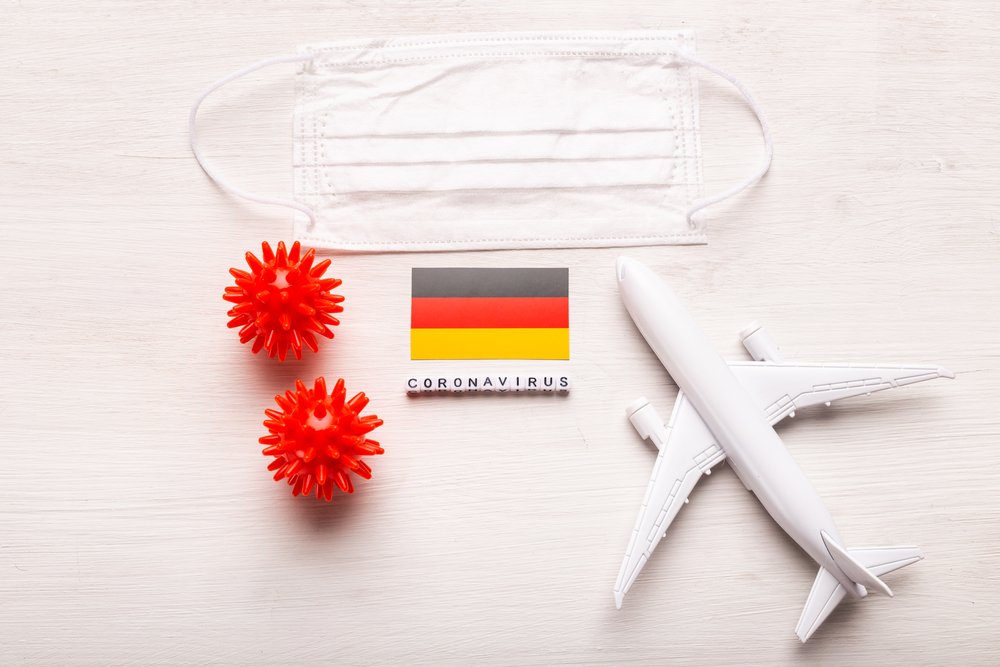
The Federal Ministry of Health, the Federal Foreign Office, and the Federal Ministry of the Interior and Community of Germany have agreed on a new list of high risk areas on February 4th, 2022.
The list will come into effect on February 6th, 2022, and it will affect all people who have been in these areas in the last 10 days.
As of February 4th, the German authorities have not recognized new areas of variants of concern. After the spread of the Omicron variant across the world and the absence of new COVID-19 variants, the list of areas of variants of concern remains blank.
But there have been new additions to the list of high risk areas. Armenia, Azerbaijan, and The Palestinian Territories are now considered at risk. On the contrary, Germany has removed the following countries from the list of high risk areas: Benin, Botswana, Burkina Faso, Cabo Verde, Cameroon, The Central African Republic, Chad, Comoros, Congo, Côte d’Ivoire, Djibouti, Equatorial Guinea, Eritrea, Ethiopia, Gabon, Gambia, Ghana, Guinea, Guinea-Bissau, Liberia, Mali, Mauritania, Mozambique, Niger, Nigeria, São Tomé and Príncipe, Senegal, Sierra Leone, Somalia, Togo, Sudan, and South Sudan.
This means that the list of high risk areas currently includes:
- Afghanistan
- Albania
- Algeria
- Andorra
- Antigua and Barbuda
- Argentina
- Armenia
- Australia
- Austria (except for the municipality of Mittelberg and Jungholz and Rißtal in the municipal area of Vomp and Eben am Achensee)
- Azerbaijan
- Bahamas
- Bahrain
- Bangladesh
- Barbados
- Belarus
- Belgium
- Belize
- Bhutan
- Bolivia
- Bosnia and Herzegovina
- Brazil
- Bulgaria
- Canada
- Chile
- Colombia
- Costa Rica
- Croatia
- Cuba
- Cyprus
- Czech Republic
- Denmark (including the Faroe Islands and Greenland)
- Dominica
- Dominican Republic
- Ecuador
- Egypt
- Estonia
- Fiji
- Finland
- France (including the departments or overseas territories of Guadeloupe, Guiana, Martinique, Mayotte, New Caledonia, Réunion, Saint Barthélemy, Saint Martin, and Saint Pierre and Miquelon)
- Georgia
- Greece
- Grenada
- Guatemala
- Guyana
- Haiti
- Hungary
- Iceland
- India
- Iraq
- Ireland
- Israel
- Italy
- Jamaica
- Japan
- Jordan
- Kazakhstan
- South Korea
- Kosovo
- Kuwait
- Kyrgyzstan
- Latvia
- Laos
- Lebanon
- Libya
- Liechtenstein
- Lithuania
- Luxembourg
- Madagascar
- Maldives
- Malta
- Mexico
- Moldova
- Monaco
- Mongolia
- Montenegro
- Morocco
- Nepal
- The Netherlands and all its overseas territories
- North Macedonia
- Norway
- Oman
- Pakistan
- Palau
- Palestinian Territories
- Panama
- Papua New Guinea
- Paraguay
- Peru
- Philippines
- Poland
- Portugal (including the Azores and Madeira)
- Qatar
- Romania
- Russia
- Saint Kitts and Nevis
- Saint Lucia
- Saint Vincent and the Grenadines
- San Marino
- Saudi Arabia
- Serbia
- Seychelles
- Singapore
- Slovakia
- Slovenia
- Spain (including the Balearic Islands and the Canary Islands)
- Suriname
- Sweden
- Switzerland
- Syria
- Tajikistan
- Trinidad and Tobago
- Tunisia
- Turkey
- Turkmenistan
- Ukraine
- United Arab Emirates
- United Kingdom of Great Britain and Northern Ireland (including all British Overseas Territories, Isle of Man, and the Channel Islands)
- United States of America
- Uruguay
- Uzbekistan
- Venezuela
- Vietnam
- Yemen
People who’ve been in these areas in the last 10 days must complete a digital registration on entry and present a vaccination certificate, a recovery certificate, or a negative COVID-19 diagnostic test upon arrival in Germany. If they don’t have any certificate, they’re required to stay in quarantine for a period of 10 days. They can shorten that period if they take a COVID-19 diagnostic test on the 5th day.